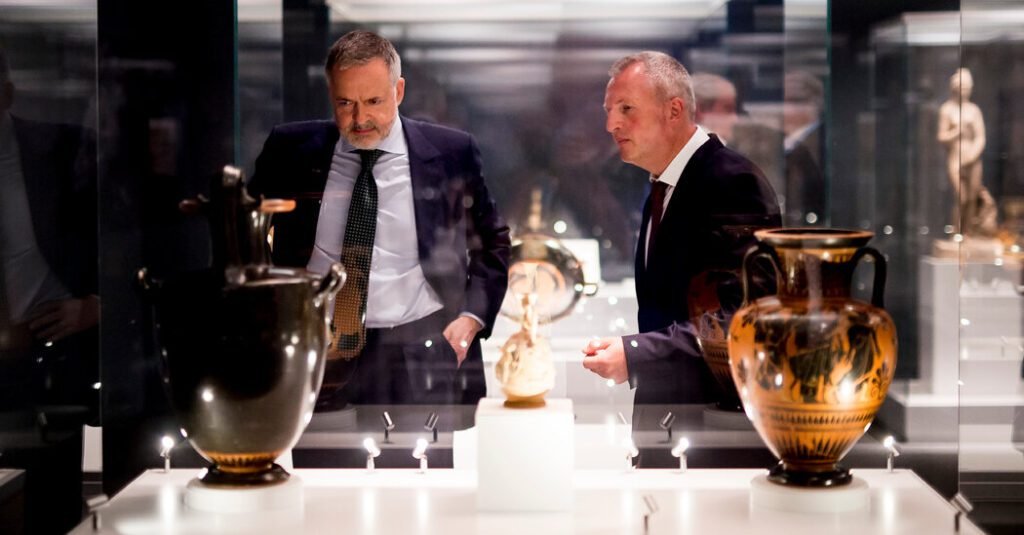A judge has ordered a former curator who the British Museum says stole hundreds of artefacts to return any gems or jewelery the institution owns.
The museum alleges that the former curator, Peter Higgs, who once ran the museum’s Greek and Roman antiquities department, stole or destroyed more than 1,800 items from its collections and sold hundreds of them on eBay, according to court documents.
Officials also want Mr Higgs to explain the whereabouts of other items they say the former curator sold online. Court documents say Mr Higgs disputes the charges against him.
At a hearing at the High Court in London, the presiding judge, Heather Williams, ordered Mr Higgs to return any items within four weeks. Judge Williams also ordered PayPal, the online payments company, to disclose data about Mr Higgs’ eBay accounts, including his transaction history.
Missing museum items include engraved gems and jewelry, some of which are thousands of years old.
On Tuesday, Mr. Higgs and his family did not respond to emails and social media messages from The Times. In court documents, the museum’s lawyers said the curator was “suffering from severe mental stress” and was “unable to respond effectively to the proceedings”.
Since the museum announced the thefts in August, it has recovered only about 350 of the missing items.
London police are investigating, but a spokeswoman for the force said in an email Wednesday that it had not charged anyone in connection with the missing items.
The museum said in court documents that it had “substantial evidence” that between 2009 and 2018, Mr. Higgs “abused his position of trust with the museum” to take items, including items that the museum had not fully cataloged. Mr. Higgs sold many of them on eBay to at least 45 different buyers, the museum says. Those buyers reportedly include people from the United States and Denmark.
In the filing, the museum also accuses the former curator of trying to cover up the thefts by altering the museum’s digital catalog, including changing the descriptions of the missing items.
Although British newspapers had long reported that Mr Higgs was the curator at the center of the scandal, Tuesday’s hearing was the first time the museum has named him.
When the museum fired Mr Higgs for gross misconduct in July, he had worked there for more than 30 years. In 2021, the museum promoted Mr. Higgs to active custodian of its Greek and Roman section — an important position that oversees some of the museum’s most valuable objects, including the disputed Parthenon Marbles.
Mr Higgs has curated several blockbuster exhibitions for the British Museum, including a 2016 exhibition on the history of Sicily. Another of his exhibitions, “Ancient Greeks: Warrior Athletes and Heroes”, toured Australia and China.
The museum’s legal team told the court the foundation was trying to force Mr Higgs to give details of the items it says he stole because there was a risk they would soon “become unrecoverable”.
“As long as the objects are free, recovering the stolen objects becomes more difficult as the objects are sold and resold, possibly across borders,” the museum’s lawyers told the court. “The sooner the museum is able to contact other buyers,” he adds, “the more likely it is that further property will be recovered.”

